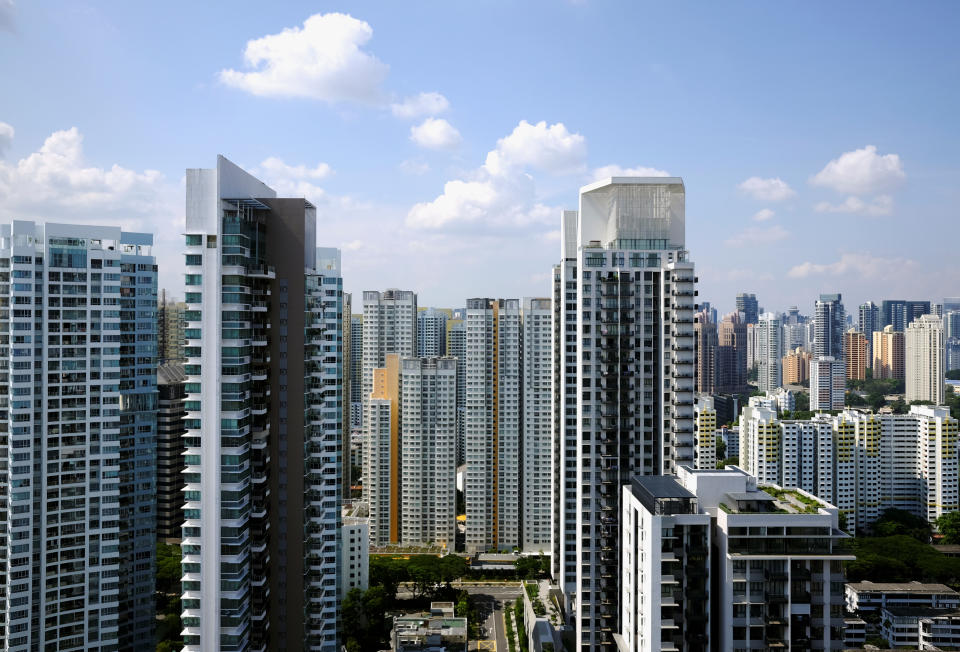Singapore property market weathers recession as home prices rise

By Faris Mokhtar
(Bloomberg) -- Singapore home prices rose last quarter as low interest rates and huge government stimulus helped the property market weather the city-state’s worst recession.
Property values increased 0.8% in the three months ended Sept. 30, according to the Urban Redevelopment Authority’s preliminary estimate released Thursday.
The stronger-than-expected result prompted analysts to revise forecasts, saying prices may rise as much as 1.5% this year, having previously estimated declines of as much as 6%.
The figures, which come on the back of an 11-month high in home sales, signal the property market is recovering after a two-month lockdown to combat the coronavirus. To cushion the economic fallout, the government unleashed more than S$100 billion ($73.3 billion) of stimulus. It has since relaxed virus curbs and lifted travel restrictions for tourists from Australia and Vietnam.
“The property market remained resilient in spite of the uncertainties in the trajectory and development of the coronavirus,” said Christine Sun, head of research and consultancy at OrangeTee & Tie. “Market sentiment may continue to improve and demand of properties may remain strong in the coming months as more sectors of the economy reopen.”
The gains were largely driven by rising values of properties located in the suburbs and those just outside the prime district, which both saw robust demand after the lockdown was lifted in June.
“There’s been consistent price growth in the suburbs because new residential projects are launched at higher prices,” said Nicholas Mak, head of research and consultancy at APAC Realty Ltd. unit ERA. “Furthermore, public housing home owners are making a profit from selling their apartments, allowing them to buy private properties.”
Measures to allow home buyers to defer loan repayments and waiving charges for developers applying to extend completion deadlines also helped prop up the market. These factors prevented homeowners and developers from slashing prices too drastically to spur sales, Sun said.
She now sees home prices ending the year in a range of down 1% and up 1%. ERA’s Mak said prices could rise between 0.5% and 1.5% for the year.
“Unless the economy take a turn for the worse and prices fall in the fourth quarter, then we could end up in negative territory. But I’m optimistic that we’ll see growth in the fourth quarter,” he said.
(Adds analyst forecasts, comment from third paragraph.)
© 2020 Bloomberg L.P.

 Yahoo Finance
Yahoo Finance 